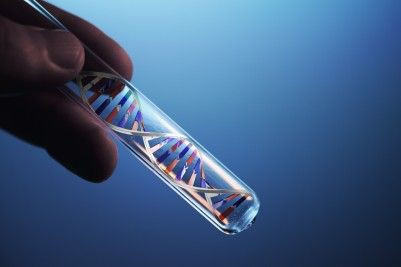Supreme Court Approves DNA Swabbing; Argues That The Crime-Solving Advantages Outweigh Potential Privacy Risks

In this morning's new Supreme Court ruling regarding DNA collection, modernity has won the ongoing battle between modern technology and centuries-old privacy laws. Now, police can collect DNA from people arrested, but not yet convicted of serious crimes.
In the effort to solve unsolved crimes, 26 states have already begun to collect DNA from those arrested for felonies, or other serious crimes, and add it into a national database run by the federal government. The idea is to keep all of the DNA of suspicious persons accessible so that if they commit other crimes, they can easily be identified.
Recently, lawmakers trying to solve crimes have run into many privacy-related roadblocks. For example, in recent years, rules regarding the Fourth Amendment have changed so that cops may not attach tracking devices to the vehicles of suspects, use drug-sniffing dogs at residences, or execute search warrants while no one is at home.
These previous practices are no longer deemed appropriate. Privacy issues have left many crimes unsolved because law enforcement cannot find enough details to convict a suspect of actually being present during, or committing, the crime.
Given the new DNA collection ruling, however, all of this may change.
For example, Alonzo Jay King was connected to a rape case in Maryland after being arrested in 2009 on an assault charge. He was convicted of both the assault and the rape, which occurred in 2003, and remain unsolved until his DNA was added to the system.
"DNA identification of arrestees is a reasonable search that can be considered part of a routine booking procedure," Justice Anthony Kennedy said. "Taking and analyzing a cheek swab of the arrestee's DNA is, like fingerprinting and photographing, a legitimate police booking procedure that is reasonable under the Fourth Amendment." He argues that there are too many benefits to worry about privacy, especially if a person has already proven him or herself capable of criminal activity.
The Fourth Amendment of the United States Constitution guards Americans against unreasonable invasions of privacy during criminal proceedings. If a person is suspected of a crime, law enforcers must get signed warrants and permission to search their homes, vehicles, or other belongings for proof of guilt. But they may not receive such permission until they have proven that this person may be guilty and requires investigation. However, given that nearly 40 percent of crimes were unsolved in 2009, this new DNA collection measure is more than necessary as everyone has the capacity to leave behind DNA where they were present, especially during a violent crime.
Debates are being made over the loss of this personal information and potential framing. However, personal data like DNA Is collected from criminals and potential criminals all the time from crime scenes and stored in databases like the Integrated Automated Fingerprint Identification System.
Now, this addition of the DNA of individuals convicted of crimes is likely to be very useful, as the current databases all focus on fingerprints left behind at crime scenes, instead of other biological materials like hair, sweat or even blood.
Last year, Congress passed the Katie Sepich Enhanced DNA Collection Act, which President Obama signed in January. It created a grants program to help states pay for the expanded system of collecting and storing DNA evidence.
Published by Medicaldaily.com



























